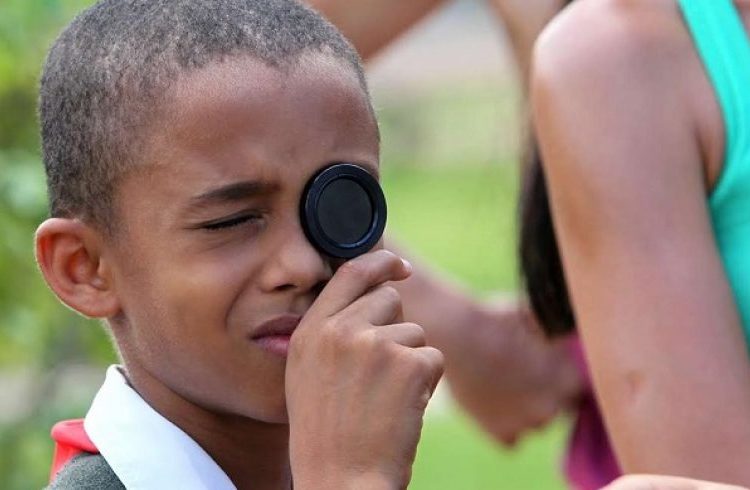The 8th edition of the Hispanic Film Festival of the New York Stony Brook University will be dedicated to contemporary Cuban cinema.
The event will take place next April 10, 11, 12 and 28 with the presentation of the films El acompañante (Pavel Giroud, 2015), La pared de las palabras (Fernando Pérez, 2014), Conducta (Ernesto Daranas, 2014) and Esteban (Jonal Cosculluela, 2016).
The festival will have the collaboration of the Bach Media film producer, also based in the Big Apple. Jesús Hernández, its founder, will give a lecture on the independent film production process in Cuba through his experience as producer of La pared de las palabras, the first completely independent film made by renowned filmmaker Fernando Pérez.
For Gisele Blain, coordinator of the Festival, “the social commitment present in Cuban cinema is a window to get to know the island’s different realities.” Born in Costa Rica but of Cuban parents, Gisele, who spoke with OnCuba about the Festival, also belongs to the Department of Hispanic-American Literature of this university.
The Festival’s slogan is suggestive (“from utopia to dystopia”). Why was it chosen?
When the word utopia is adapted to the Cuban context it acquires a particular connotation. It describes the history of the island in different ways. “From Utopia to Dystopia” demarcates a transition that many of us are able to see in political or economic terms. I perceive it the same in social terms.
Nowadays this utopic discourse exists in society as part of the past. In other words: I believe that the future of Cuba is in the now and in the one that searches and needs to immediately see the fruit. The absence of future in the collective imagination places in the arts the responsibility and the task of proposing futures, as aid and orientation to help to come out of the uncomfortable transition.
How did the Festival emerge?
The Hispanic Film Festival in Stony Brook University emerged for the first time in the spring of 2010. It was the joint initiative of Ph.D. Dean Albritton and Gabriela Álvarez with other student graduates from the Department of Hispanic-American Literature and Languages. Motivated by their study interests in the Hispanic-American visual arts they organized to establish this successful annual tradition. This year the Festival will be 8 years old winning over audiences of professors and students.
Why Stony Brook University’s interest in organizing a Festival whose center is Cuban cinema?
The interest was motivated by several factors. It fundamentally came up after all the recent events that have fixed the attention of many on Cuba and, specifically, in our case, that of the U.S. people.
Last semester I attended two small talks sponsored in the university, one was about the future of Cuba and the other about Cuban art. The tone and the type of questions asked by those present after the talk caught my attention rather a lot. They were questions marked by curiosity as well as by the lack of knowledge about the subject. Added to these experiences, my research studies are interested in Cuban visual arts. Coinciding with my recent visit last January to the Cuban Institute of Cinema Arts, I brought in my luggage the inspiration for the festival and a long list of Cuban film titles.
Why do you believe there is a growing interest in the United States in cinema currently being made in Cuba?
Cuban cinema is able to project in a natural way stories that create windows to different realities in Cuba. Different factors have an incidence in the interest in the United States in Cuban cinema. What’s most attractive is to have access to the Cuban imagination through an art recognized for its elaborate simplicity, which promotes the narrative creativity, establishing a complexity dependent on the story, the actors, the photography and not in high-budget productions.
The Cuban films El acompañante, La pared de las palabras, Conducta and Esteban will be presented in the Festival. Why were those chosen specifically?
In addition to considering that each one of these films are excellent films in terms of Cuban artistic talent and that their productions are recent, I was looking for films that would help me cover social themes.
The indispensable institutions for all of society and for its progress (speaking of the future) are education and health. At the same time, when it’s about Cuba, they are the most mythicized. Within a wide framework, El acompañante and La pared de las palabras represent a structured representation of the health care institutions, while Conducta and Esteban deal with the education theme. These stories as part of fiction do not neglect the issue of the future and question it based on the reality they project.
Do you believe these films are a representation of current Cuban society?
I believe that what these films have in common is precisely that they are faithful to the complexities that exist in current Cuban society.
Do you know if there are other universities in the United States that organize similar events?
Yes, like us there are many other universities interested in Latin American culture, American themes and promoting diversity through cinema.
What is your opinion of contemporary Cuban cinema?
I feel very proud of Cuban cinematographic production. Cuban cinema covers a creative substance and a tremendous artistic talent, with such an original character that it makes it unique. I can only wish that they continue exploring those same resources so they can continue being disseminated throughout the world.











